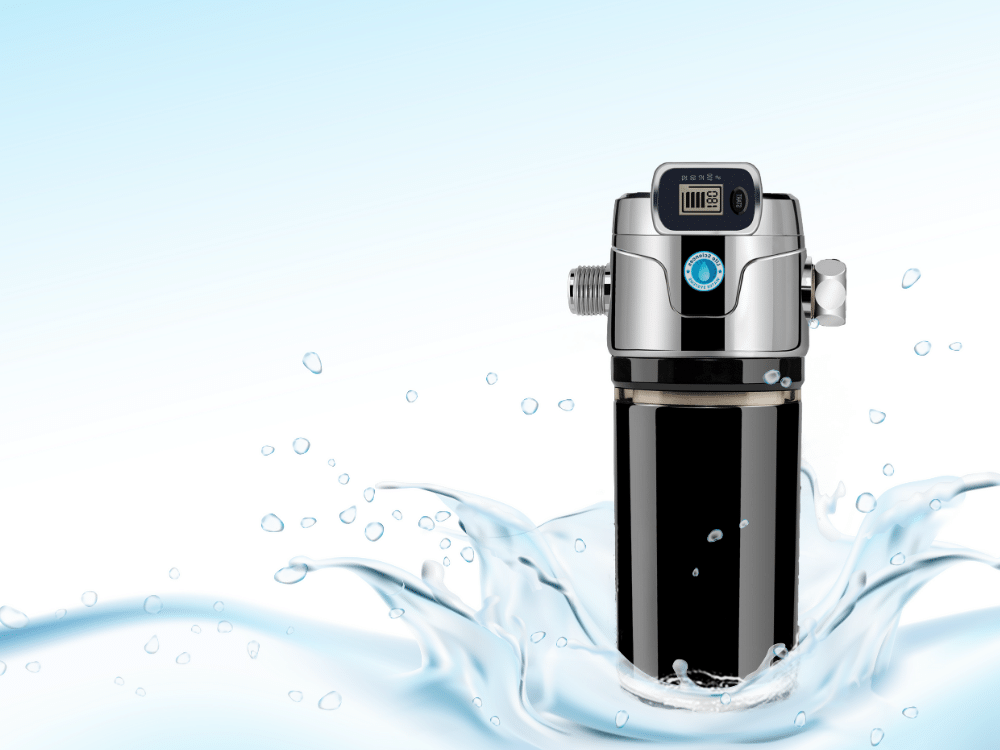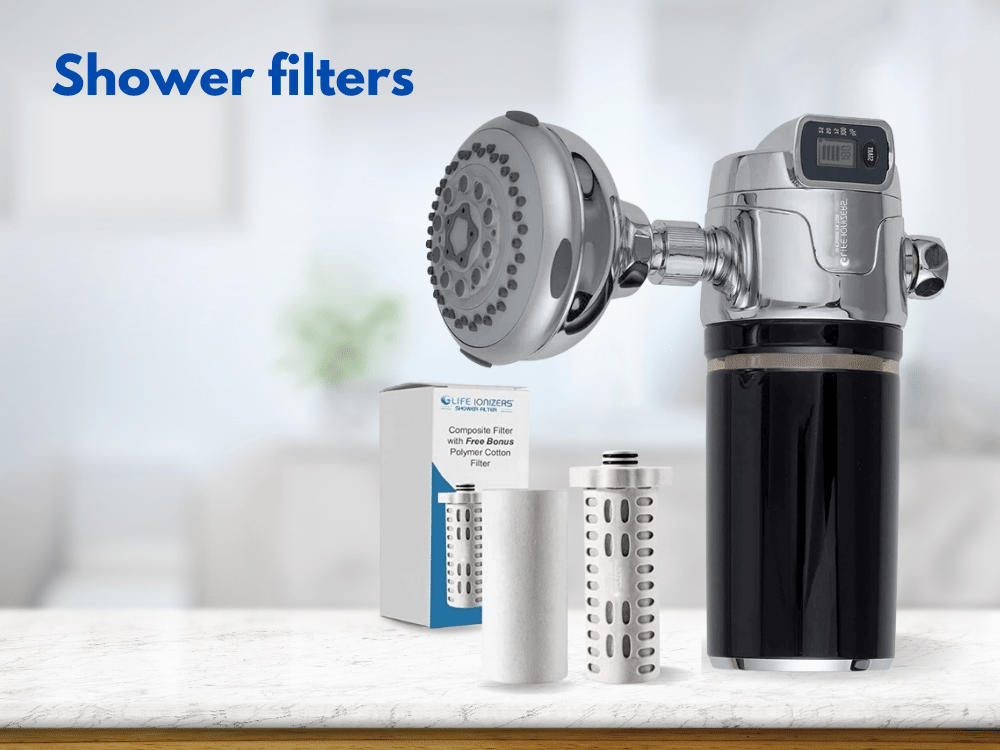Did you know? That taking a hot shower could expose you to harmful toxins? Yes, you read that right!
According to recent studies, breathing in toxins while taking a hot shower is a dangerous reality that many of us ignore. These toxins can cause various health problems, such as respiratory issues, skin irritation, and even cancer. So, before you turn on the hot water, it’s essential to understand the risks associated with it.
You should take the necessary precautions to protect yourself and your loved ones. In this article, we’ll explore the dangers of hot shower breathing. We’ll also discuss ways to minimize exposure. So, let’s start!

Dangers of inhaling toxins in hot showers
Hot showers may seem like a relaxing and harmless activity, but they can expose you to harmful toxins. First, your body comes into contact with these toxins and your skin absorbs them. And even more importantly, hot water vaporizes chemicals present in the water, which can then be inhaled.
Some of the most common chemicals found in shower water include chlorine, chloramines, volatile organic compounds (VOCs), and trihalomethanes (THMs). These chemicals can cause serious health problems if inhaled regularly over an extended period.

Chemicals commonly found in shower water
Chlorine and chloramine are two chemicals commonly found in tap water. Chlorine is added to water to kill bacteria and other harmful microorganisms.
Chloramines are formed when chlorine reacts with organic matter in the water. Both of these chemicals can cause skin irritation, eye irritation, and respiratory problems when inhaled.
VOCs are another common chemical found in shower water. These chemicals are often used in plastics, paints, and cleaning products. They can cause headaches, dizziness, and respiratory issues when inhaled.
THMs are formed when chlorine reacts with organic matter in the water. These chemicals cause cancer and other health problems.

Chlorine-Free Water
Modern society relies on treated tap water for showers and baths. Chlorine, commonly used to sanitize water, poses health risks. In fact, studies have shown that shower steam can contain up to 20 times the amount of chlorine in vapor form than is absorbed versus the amount absorbed when bathing in tap water.
Chlorine exposure can have adverse effects, some of which are listed below.
- Irritation of the eyes, upper respiratory tract, and lungs (which may further exacerbate existing respiratory afflictions or conditions such as asthma).
- Exacerbation of hair loss.
- Onset of dry skin and hair brittleness (capable of aggravating dermatological ailments like eczema and psoriasis).
- Ocular and throat irritations.
- Occurrence of pulmonary edema.
- Accelerated generation of excessive free radicals, hastening the aging process.
- Predisposition to certain forms of cancer (a direct consequence of exposure to chlorine byproducts).
Chlorine Hazards
Chlorine, while effective at killing harmful bacteria and pathogens in the water, can have a negative impact on our bodies.
When exposed to chlorine during showers, our pores open up due to the heat, leading to chlorine absorption through both water and steam. This absorption can cause several issues, including skin irritation, dryness, premature aging, and brittle hair.
Oxidizing Effect on Skin
One of the key reasons chlorine harms our skin is its oxidizing effect. It reacts with water, releasing nascent oxygen and hydrogen chloride, which damages our tissues at a molecular level.
As the body’s largest organ, the skin is highly absorbent, readily bonding with chlorine and leading to various skin problems.

Respiratory health concerns
Apart from skin absorption, chlorine can also be inhaled into our lungs while showering, entering the bloodstream. Studies have shown that over 50% of our daily chlorine exposure comes from inhalation.
Long-term exposure to chlorine vapor has been associated with respiratory issues such as asthma, breathing problems, and heightened sensitivities in individuals with existing respiratory conditions.
Premature aging and hair damage
Chlorine’s chemical interaction with skin and hair protein can cause noticeable effects. Hair may become dry and brittle, losing its natural luster and strength. Chlorine exposure can also contribute to premature wrinkles in the skin, accelerating aging.
Increased Cancer Risk
Chlorine reacts with organic matter in water, forming disinfection by-products, including trihalomethanes (THMs). Prolonged exposure to THMs has been linked to an increased risk of certain cancer types. While the risk may be relatively low, it is essential to minimize our exposure to chlorine and its by-products as a precautionary measure.
Ways to reduce shower toxins
To reduce your exposure to toxins in the shower, you can take several steps.
- Take shorter showers to reduce your exposure in the shower. Toxins build up in the shower as you stay longer.
- You can also turn down the water temperature.
- Hot water vaporizes chemicals, so cooler water reduces air toxins.
- One of the easiest ways is to open a window or turn on a fan to improve ventilation.
- You can also use natural and organic soaps and shampoos free of harsh chemicals.
- You can also reduce exposure by drinking plenty of water before and after your shower.
- Another way to reduce exposure is to install a shower filter.

Water Filtration Systems
Installing a water filtration system specifically designed to remove chlorine can significantly reduce its presence in shower water.
There are various options available, including shower filters and whole-house water filtration systems. These filtration systems utilize activated carbon or other effective media to remove chlorine, ensuring cleaner and safer shower water.
Shower filters
Shower filters offer a convenient and affordable way to reduce chlorine levels in your bath water. These filters are typically attached to your bathroom showerhead.
They filter out chlorine, chloramines, VOCs, and THMs, among others. Using a shower filter can reduce skin irritation, respiratory problems, and other health issues associated with inhaling toxins during hot showers.
With a Life Shower Filter, your tap water will be chlorinated to 99%. https://lifewaterreport.com/product-category/shower-filters/
Upgrade your shower experience with our ultimate shower filter. Designed to reduce chlorine in your water, this shower filter delivers pure, clean, and refreshing water every time you shower.
Say goodbye to dry skin and damaged hair caused by harsh chemicals. Our shower filter is the right choice for a healthy bathing routine. The acidic water in the area promotes healthy skin and hair growth.
Conclusion
During a hot shower, the steam we inhale contains water vapor that carries chlorine and various disinfection byproducts, such as trihalomethanes (THMs).
Unlike our digestive system, which handles toxins, our lungs are not designed to efficiently process these chemicals. Even low-level exposure through inhalation can have a more pronounced effect on our health than ingesting them through drinking water. This makes it crucial to understand and address the risks associated with chlorine in shower water.
By removing impurities and ensuring a luxurious shower experience, the Life Shower Filter provides an advanced filtration system.
It has a Lifetime Guarantee and double shower filtration technology. Feel the difference in your skin and hair as you enjoy the soothing, toxin-free water. learn More
